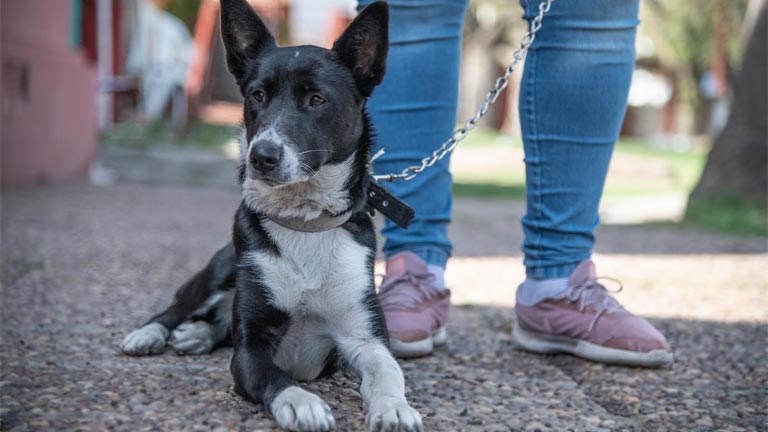
For many pet owners, the welfare and happiness of their beloved dogs are top priorities. While most dogs thrive in a loving home environment, there are situations where doggy daycare can be an excellent option. Check out the ins and outs of doggy daycare to help you determine if it fits your furry companion.
The Rise of Doggy Daycare
Doggy daycare facilities have gained popularity in recent years, offering a safe and stimulating environment for dogs when their owners are away. These facilities provide various services, from basic supervision to structured activities, socialization opportunities, and specialized care for dogs with unique needs.
Signs That Doggy Daycare Might Be a Good Fit
- Your Dog’s Energy Level: If your dog has a high energy level and is always eager for play and exercise, a daycare environment can provide the physical activity and mental stimulation they need. It can help burn off excess energy, reducing the likelihood of destructive behaviours at home.
- Separation Anxiety: Dogs with separation anxiety may benefit from the social interaction and companionship offered at daycare. Being around other dogs and caring staff can ease their anxiety when you are not around.
- Socialization: Doggy daycare provides a structured setting for dogs to interact with other dogs, improving their social skills. It can help prevent fear or aggression when encountering other dogs in different situations.
- Work or Busy Schedule: If you have a demanding job or a busy schedule that keeps you away from home for long hours, doggy daycare ensures your pup isn’t left alone for extended periods. It can contribute to their overall well-being.
How to Choose the Right Doggy Daycare
- Research & Visit Facilities: Begin your search by researching local doggy daycare facilities. Look for reviews, ask for recommendations from friends or veterinarians, and visit potential facilities in person. Pay attention to cleanliness, safety measures, and staff interactions with the dogs.
- Assess Staff Qualifications: Qualified staff members should have a good understanding of dog behaviour, basic first aid training, and experience handling different breeds and temperaments. Inquire about their qualifications and experience.
- Evaluate Supervision & Safety: Safety is paramount. Ensure the facility has adequate supervision, secure fencing, and protocols for handling emergencies. Ask about their approach to handling aggressive behaviour or conflicts among dogs.
- Daily Schedule & Activities: Inquire about the daily schedule and activities. A good daycare should offer a mix of playtime, rest, and mental stimulation. Dogs thrive on routine, so consistency in the daily schedule is essential.
- Compatibility Assessments: Some daycare facilities conduct compatibility assessments to ensure dogs are placed in appropriate playgroups based on size, temperament, and activity level. It minimizes conflicts and provides a safe and enjoyable experience for all dogs.
Preparing Your Dog for Daycare
- Vaccinations & Health Check: Most daycares require dogs to be up-to-date on vaccinations, including rabies, distemper, and Bordetella (kennel cough). A recent health check from your veterinarian may also be required.
- Behavioural Assessment: Some facilities may conduct a behavioural assessment to determine if your dog is suitable for daycare. This assessment helps them understand your dog’s temperament and socialization needs.
- Trial Period: Start with a trial period to gauge how your dog adapts to the daycare environment. A gradual introduction can help reduce anxiety and ensure a positive experience.
Signs That Doggy Daycare Might Not Be Suitable
While doggy daycare can be a fantastic option for many dogs, it may not be the right fit for every pup. Consider these signs that daycare might not be suitable for your dog:
- Aggressive Behavior: If your dog exhibits aggressive behaviour towards other dogs or people and barks frequently, it may not be safe or suitable for a daycare setting. Aggression issues should be addressed with the help of a professional trainer or behaviourist.
- Health Concerns: If your dog has underlying health issues or is susceptible to stress-related illnesses, the daycare environment may not be ideal. Consult with your veterinarian to assess your dog’s health and discuss the suitability of daycare.
- Fear or Anxiety: Dogs with severe fear or anxiety issues may not thrive in a daycare setting. The high-energy and social environment can be overwhelming for anxious dogs.
Choosing doggy daycare for your furry friend is a decision that should be made with careful consideration of your dog’s personality, needs, and circumstances. While it can be an excellent solution for many dogs and their owners, it’s essential to evaluate your dog’s behaviour, health, and socialization requirements. By researching, visiting facilities, and assessing your dog’s suitability, you can make an informed decision that enhances your dog’s quality of life and provides peace of mind when you cannot be by their side.




